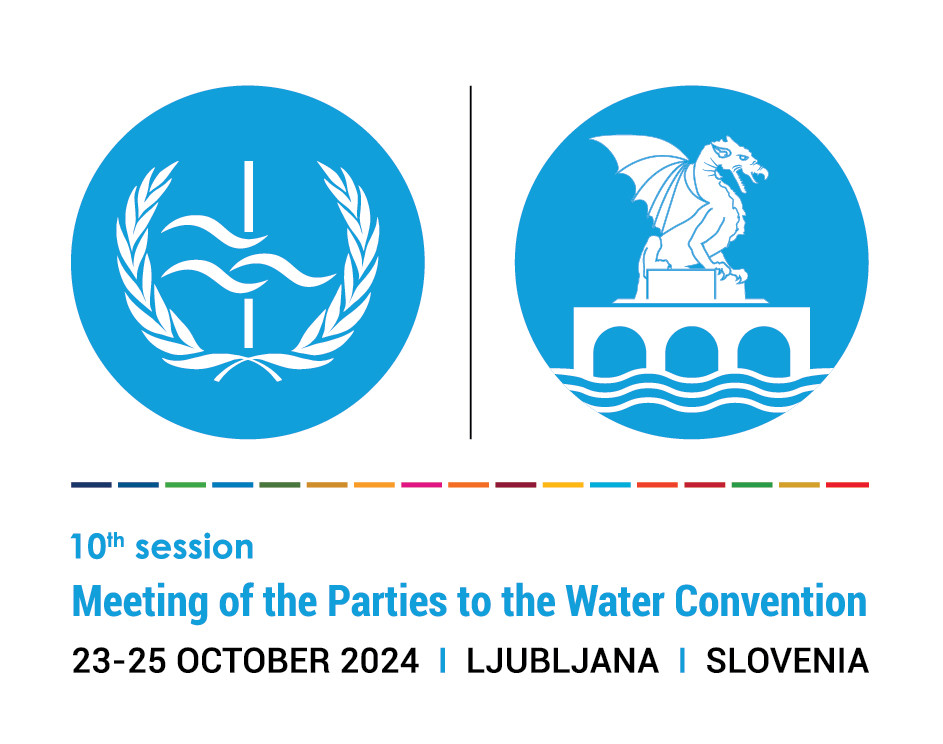In the autumn of this year Slovenia hosts an International Meeting of the parties (MoP10) to the Water Convention
The organization of the 10th Meeting of the Parties and the chairmanship of the Water Convention Bureau strengthen Slovenia's international reputation and position as a country rich with water with an internationally recognized and established tradition of transboundary water cooperation at all levels: bilateral, sub-regional, regional and global.
On behalf of the Government of the Republic of Slovenia, the session will be hosted by the Ministry of Natural Resources and Spatial Planning in cooperation with the Secretariat of the Water Convention at the United Nations Economic Commission for Europe (UNECE). During this week, invitations are being sent to 158 countries and 218 international intergovernmental and non-governmental organizations.
Through Slovenia's active participation in the Water Convention and the chairmanship of its Bureau, it contributes to a globally more integrated and agreed, climate-resilient transboundary water management and more sustainable transboundary water use, thus to also to stability and peace in the regions. It strengthens the implementation of the country's interests in the field of transboundary water management in the region and wider, adding water-related development opportunities. In its activities, Slovenia will follow and actively implement the UN Agenda 2030 Goal 6, cooperation with related conventions, recommendations of the UN Water Conference 2023 and the UN Groundwater Summit 2022, preparations to the UN Water Conference 2023, and the priority topics of non-permanent membership of the UN Security Council.
About the meeting in Ljubljana
The world is confronted with the triple planetary crises – biodiversity loss, natural resources pollution and climate change. The latter manifest themselves also in extreme water-related phenomena – floods, low flows, and droughts. Last year, also Slovenia experienced historical disastrous floods.
Since climate changed do not know national borders, all countries are confronted with them, an increasing climate resilience in international river basins by agreement and through joint approaches ought to be discussed.
That is why the leading theme of the first and most interesting day of the MoP10 for the public is "Our Waters, Our Future: Transboundary Water Cooperation to strengthen Climate Resilience". Ministers and other high-level representatives of states and international intergovernmental and non-governmental organizations will take part in the day-long discussions. Discussions will focus on transboundary water cooperation for climate adaptation and mitigation, climate resilience building through transboundary protection and restoration of ecosystems and biodiversity.
The second and third days of the session will be devoted to general convention contents, an overview of the implementation of the current work program, the adoption of a new work program, as well as conclusions and decisions on the directions of the Convention's activities and elections to the working bodies of the Convention.
In parallel with the Meeting of the Parties, 15 side events will be held. The day before the beginning of the Meeting of the Parties, an event by the Ministry of Foreign and European Affairs on the topic of promoting transboundary cooperation and the implementation of the Water Convention by the new Parties will be held.
At the Meeting of the Parties, Slovenia takes over the three-year chairmanship of the Water Convention Bureau until the next Meeting of the Parties in October 2027. This will further strengthen Slovenia's leading role in water-related conventions in the global and regional aspect, as it will simultaneously chair the Water, the Barcelona and the Danube Convention. In doing so, it will develop mutual programmatic and substantive synergies of action in all three conventions, with an emphasis on climate resilience and water management from source to sea.
The main tasks of the Slovenian Presidency of the Water Convention in the next three-year period are:
- supporting action to mitigate the planetary crisis,
- support for the globalization of the Water Convention and the expansion of membership,
- implementation of activities from the Work Program 2025 – 2027,
- developing climate resilience in transboundary river basins and river basins at all levels,
- development of new and innovative approaches and methods in transboundary integrated water resources management.
About the Water Convention
The Water Convention is a global legally binding international framework for transboundary water cooperation and an established intergovernmental platform for the promotion of transboundary protection and use sustainable use of surface waters and groundwater and intergovernmental agreements on the management of transboundary watercourses, international lakes and aquifers.
The Convention was adopted in Helsinki in 1992 and ratified by Slovenia in 1999. Until 2016, membership of the convention was limited to the countries of the UNECE region only. With UN Secretary-General Antonio Guterres' mandate to expand membership beyond the UNECE region, the convention has become global. It currently brings together 54 Parties, 13 of which are outside the UNECE area, and about 20 countries from sub-Saharan Africa and Central and South America are currently on their way to admission.
The Convention strives for the development and implementation of international multilateral and bilateral agreements as well as modern methods and technical approaches of transboundary integrated water resources management. In doing so, it makes a significant contribution to strengthening regional stability and peace, political will and trust, and mutual understanding among countries and other partners in resolving issues related to the management of transboundary river basins around the world.


